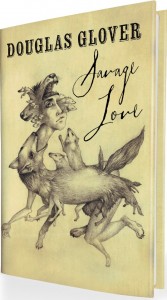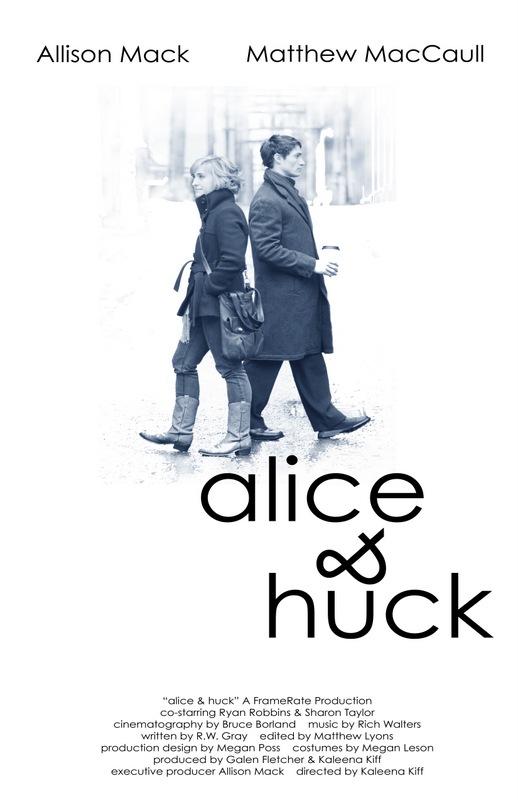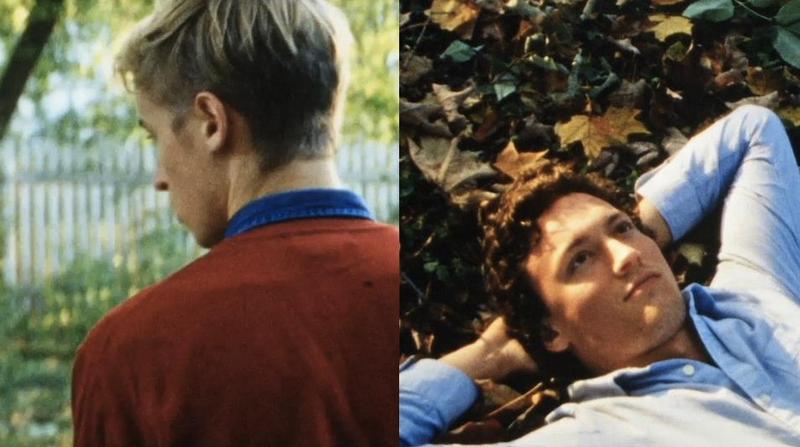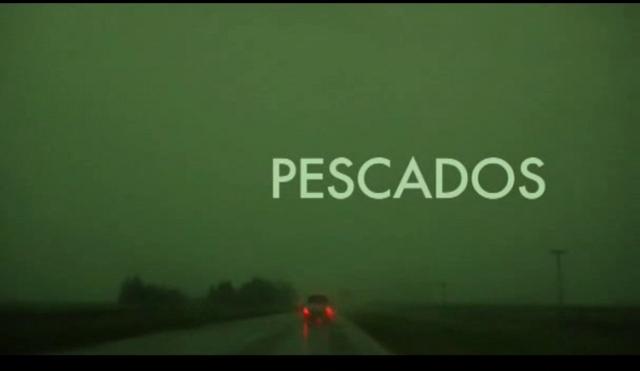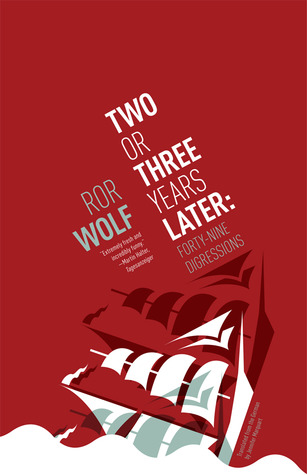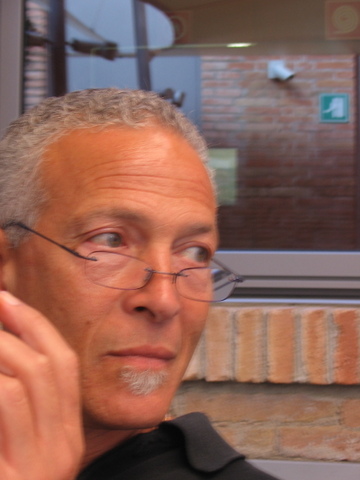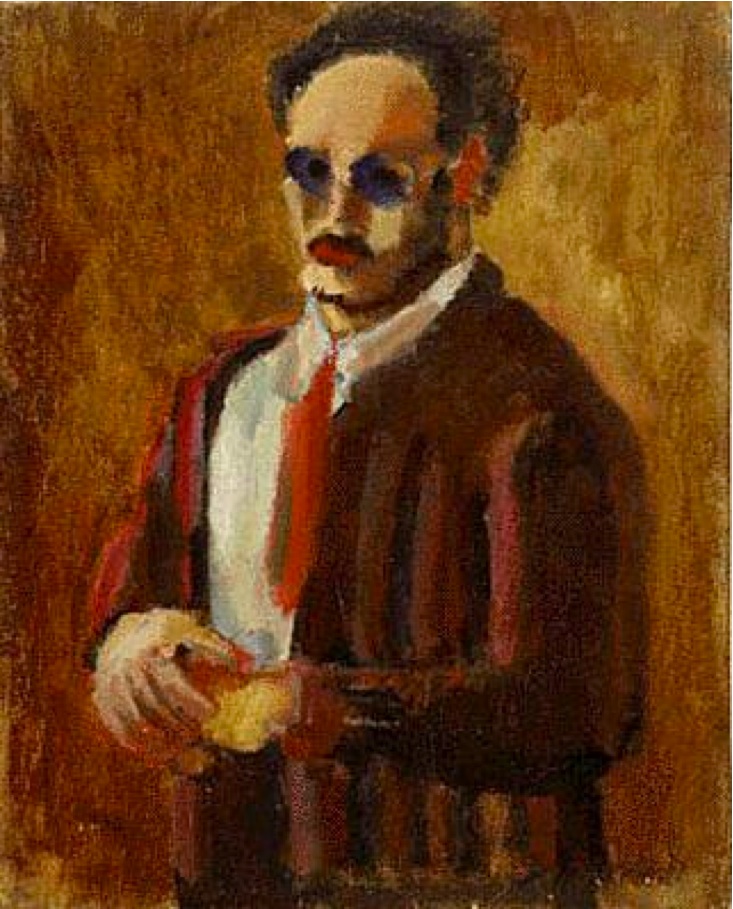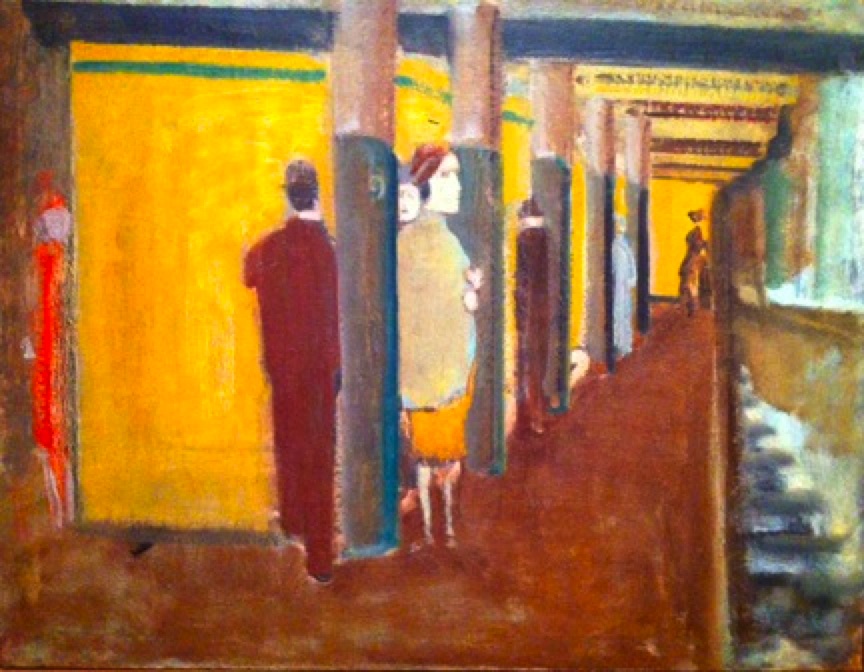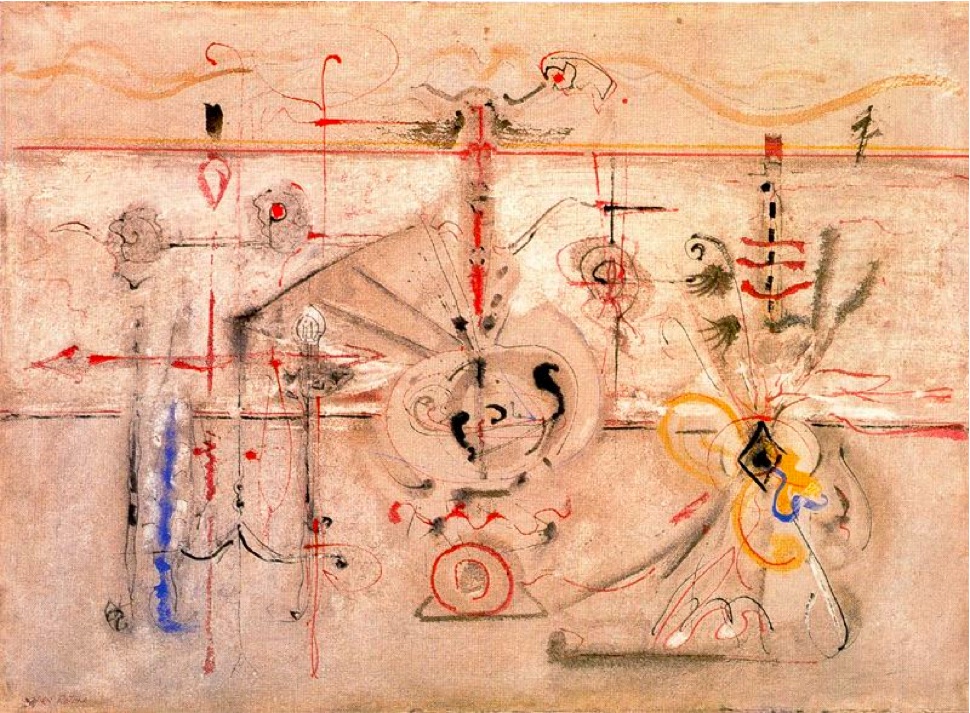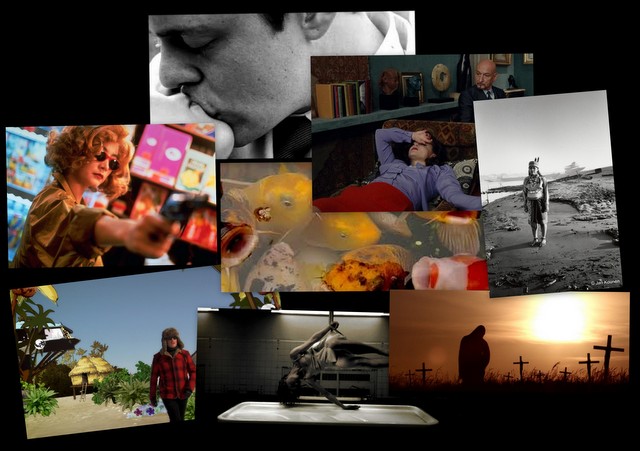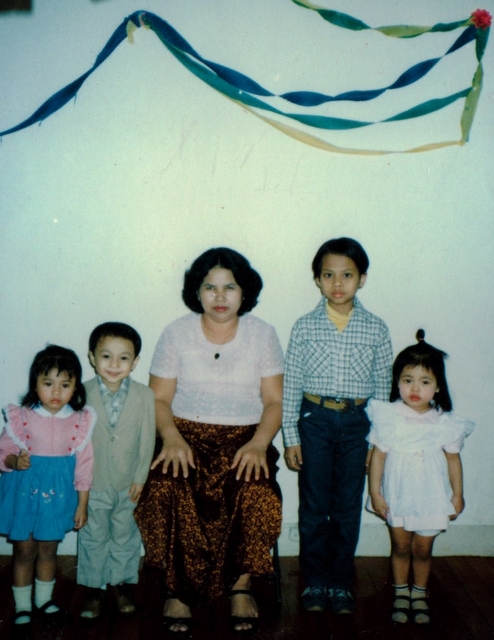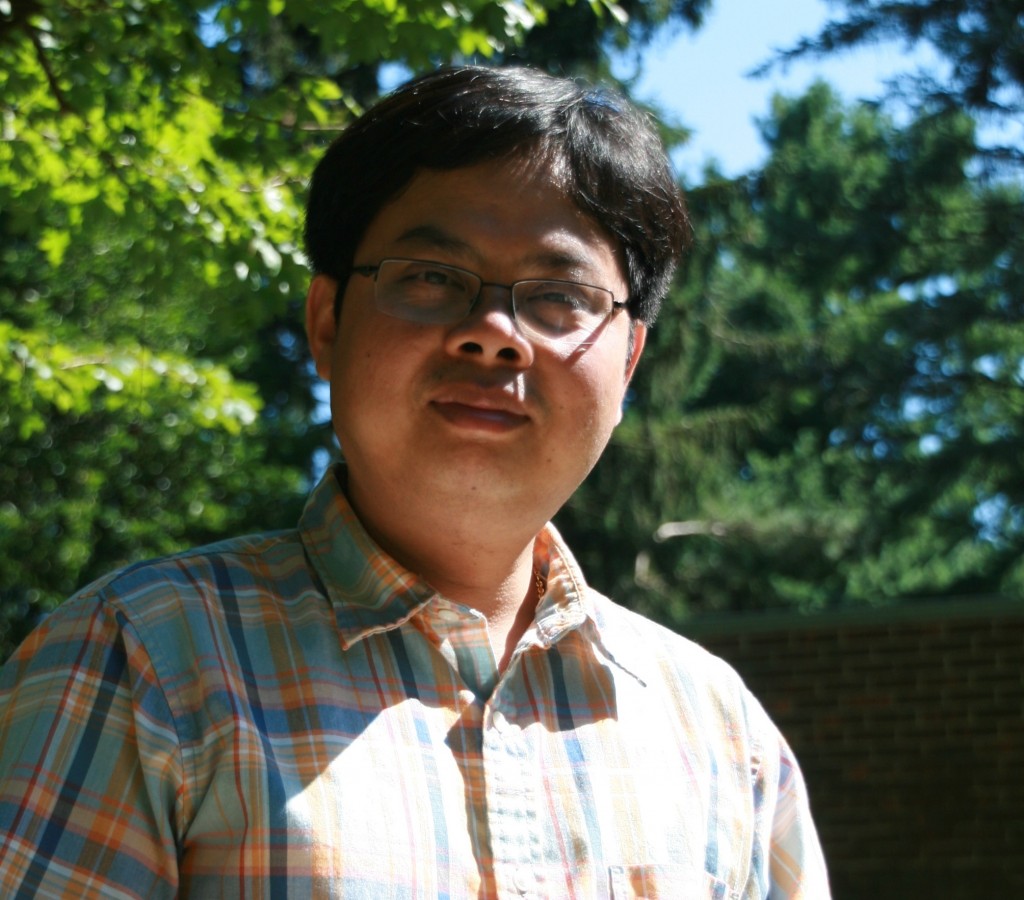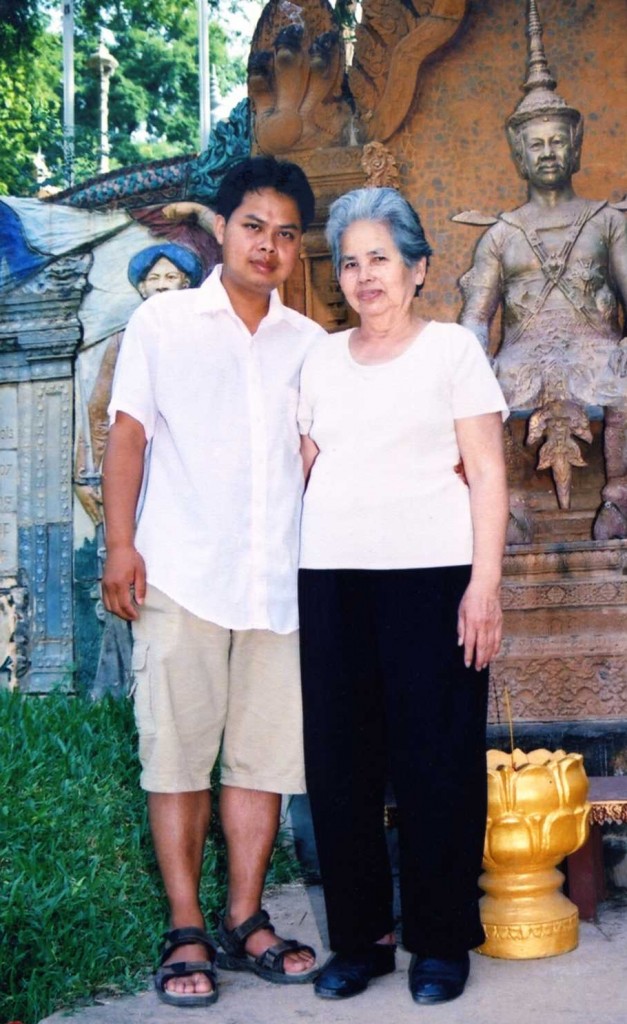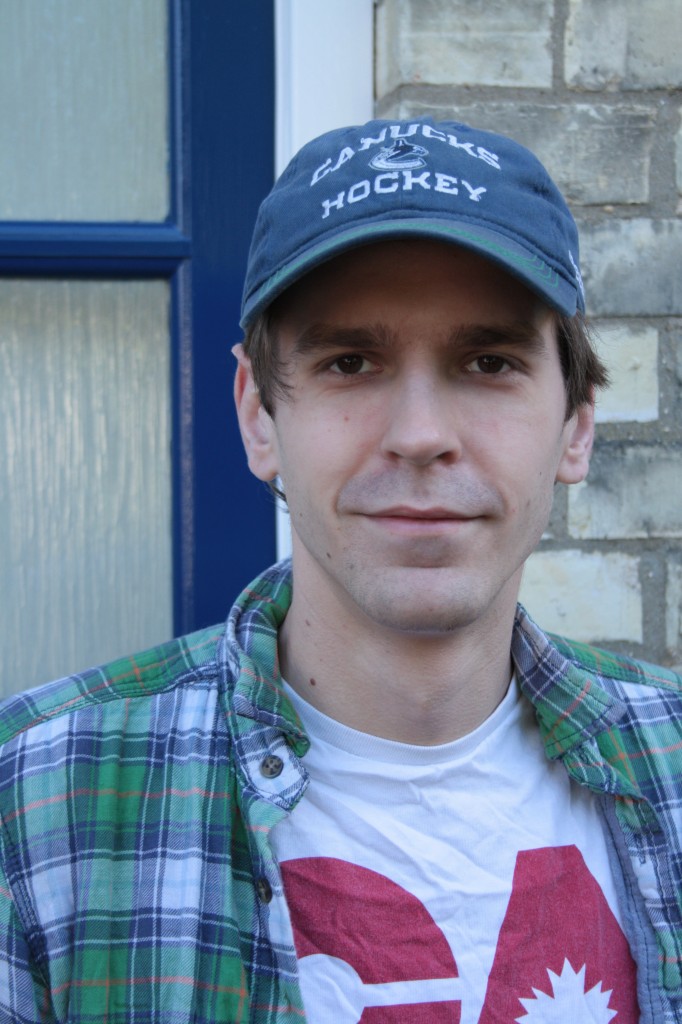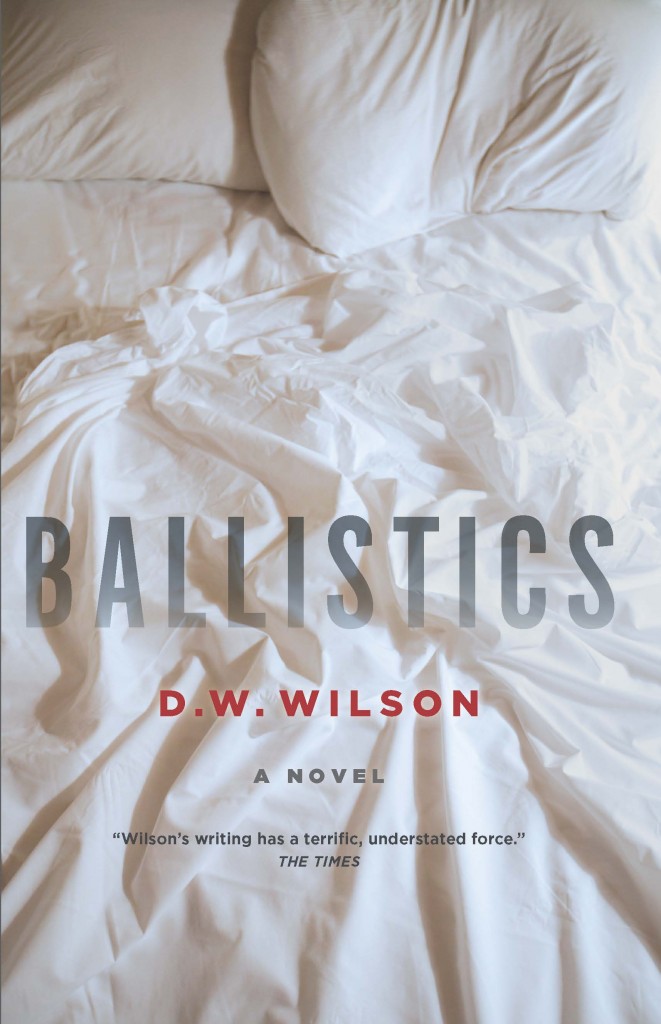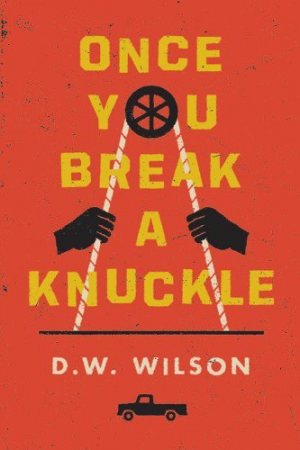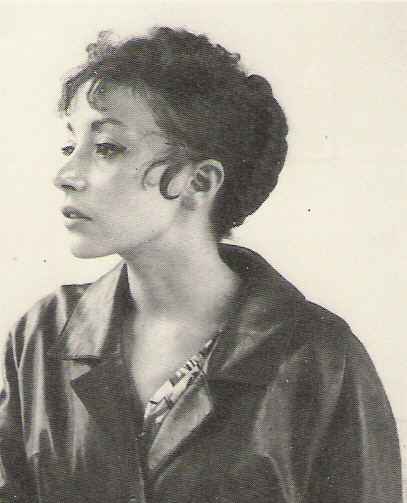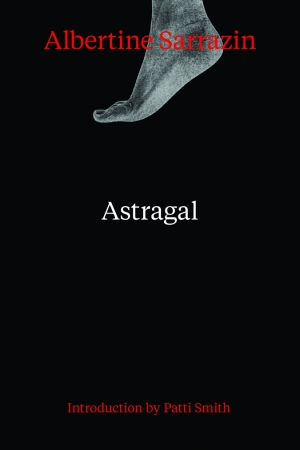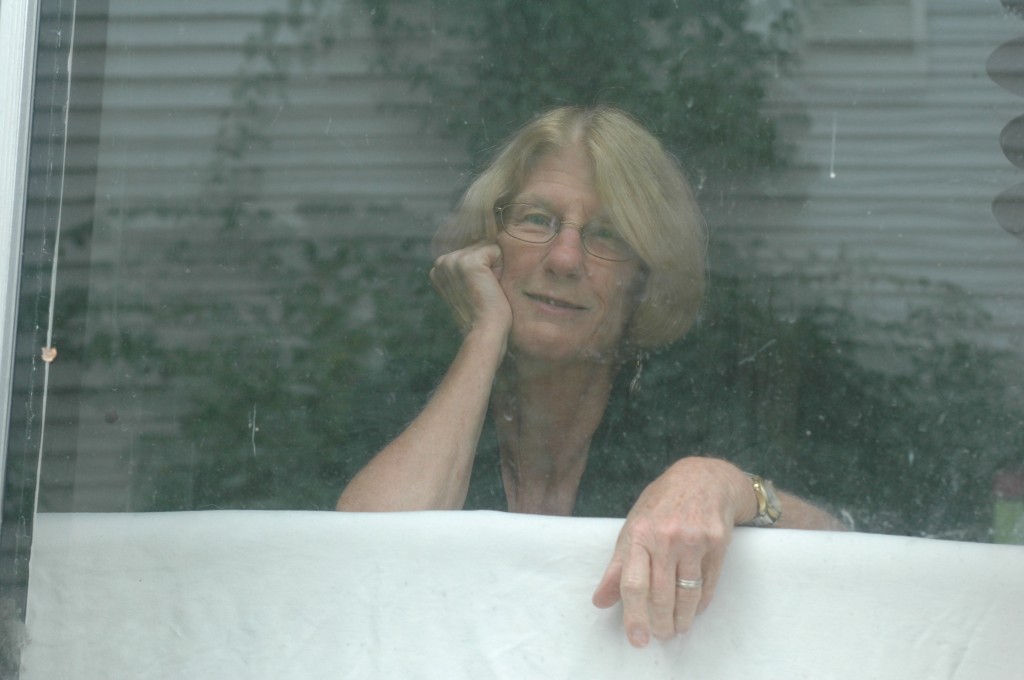
For years, I’ve listened to Robert Miner’s stories of his time in Turkey and Greece, when he was young and carefree, if not downright mischievous. Once as a boy, he set fire to a Turkish village by accident and burned half of it down. Once in Greece during the civil war, a servant took him out at night and he saw a tank drive by festooned with human heads. Bob is an old, old friend — we used to be young writers together, skiing at Gore and Stratton or on the backwoods trails behind Lake Desolation in the winter, going on roads trips in the summer, talking, talking about writing.
This is an excerpt from a novel-in-progress called Night Work, a long ongoing project based very loosely on his own and his parents’ experiences in Turkey where his father was a teacher at Robert College (as was Bob, later in life) and then a diplomat (and probably a spy). Bob’s mother came from a distinguished Anglo-Turkish family threaded with exotic businessmen, beautiful women, elegant learning and dashing adventurers. The stuff of legend.
I give you fair warning. This chapter is not for the faint of heart. It wreaks of a kind of evil that exists in places where cynical wealth enables desires we mostly cannot conceive of except in police reports or United Nations exposés of sex trafficking and tourism. It has its literary roots: Justine frantically searching the child brothels of Alexandria for her lost daughter in Lawrence Durrell’s Alexandria Quartet (remember the walls decorated with tiny anonymous childish palm prints?) or the amazing porn movie scene in Nathanael West’s great Hollywood novel Day of the Locust. Money, decadence, depravity and the mysterious seductiveness of transgression, of going beyond.
dg
—
At night they look like huge prostrate skeletons, looming for miles at the edge of the old city. Massive stone block walls fifteen feet thick, forty feet high. They’ve been there in one form or another since AD 413 when the Byzantine Emperor Theodosius II had them built from the Sea of Marmara to the Golden Horn. Behind these walls with their ninety-six towers and triumphal gates, their treasure rooms, torture rooms, and dungeons, the city multiplied, secure.
Definitions of security have changed since. The walls in places have been allowed to sag into ruin by a people more fatalistic, or perhaps merely defeated by manipulations of time that no walls, however formidable, could withstand. Still, in one section of the walls, the most temporary of peoples has found a permanent existence. No one knows how long they have lived in the catacombs and cisterns, deep inside the secret passages between huge walls and ancient dungeons, but huddled against the fortifications of the northwest section of the old city live the gypsies of Istanbul.
It was here I found myself staring at the giant slumbering bones of the city walls late one night in May, 1935. The moon traveled across the battlements under hot, fast-moving clouds. No other light could be seen, though a city of gypsies murmured in the shadow of the Fifth Military Gate, the section of the walls the ancients called Murus Bacchantes.
This night Prescott was dressed in what he called his nocturnal missions costume — his mackintosh, walking stick, monocle and hiking boots. Weekends lately, he had methodically dressed himself in this manner after classes on Friday, then disappeared for two days on solitary ventures into what he called the geology of place.
Ian — and Frau Begus in her vigorous teutonic determination — had been leading us along the moat, now a gentle grassy valley parallel to the walls. We’d passed no one and hadn’t seen a car. Dogs barked, and I remembered Stefan Genotti’s stories of wild dog packs. We passed a silent group of dark bodies curled together in the ditch by a donkey cart. In my agitated state they looked to me like the victims of some casual wartime atrocity, left to rot.
Ian was looking for something as we walked. He kept stopping and studying the walls. We’d walk a bit, feeling nervous and exposed and horribly out of place, as if the hordes who’d been frustrated by these walls a thousand years before might tonight return to wreak their revenge on us.
Ian found what he’d been looking for. He headed across the moat toward a dark space on the wall that soon showed itself to be an arched entrance to the old city. Once it would have had metal doors, but the archway was open now, and as a cloud moved across the night sky above us, I could see moonlight slide across a narrow road inside the walls.
“Now it’s essential that we keep quiet till we get to the house,” whispered Ian. “Not everyone here welcomes such intrusions. And besides,” he said, laughing, “who knows that manner of ancient pestilence you might inhale.”
There were seven of us, not all Americans. There was the Armenian wife of an English teacher from the German girls’ school in Pera. She had dark hair that shone almost blue, like a grackle. She talked in explosive whispers with her husband, grabbing at his sleeve, and she glanced everywhere around as if each look were her last. Prescott walked next to Ian, pointing at parts of the wall with his stick. Frau Begus had her arm around a stocky blond British woman — a nurse from the hospital, from what I had gathered when we met at the bus station earlier in the night. The nurse had said very little and seemed unaccountably somber in the midst of all these nervous talkers.
We walked for five minutes through a series of very narrow alleys between the walls and tall rickety looking wooden houses. In places the houses were built into the orifices of the walls and I could see candlelight flickering through arrow slits and murder holes the architects had built into the masonry. There were no streetlights and the alleys were slippery underfoot.
Once, incredibly — almost as if it were out of time — we heard engine noise and saw the beams of a car light as it squirmed down a nearby alley.
Frau Begus was knocking on a bright green door in a kind of wooden wall over the face of a giant doorway in the walls. I looked up and could see windows fitted into similar wooden barricades over other openings in what I now realized was a large octagonal stone tower, perhaps sixty feet high.
“Buyurunuz. Please come in,” a woman’s voice was saying in Turkish. But there was a strange lilt to the language which made it seem peculiarly foreign. Frau Begus and Ian had gone in first, followed by the English teacher whose name seemed to be Bunny and his black-haired wife. She was still vigorously whispering to him. Next went in the British woman whose name I didn’t know. She was tall and bovine but with long blond hair that the lady of the house ran her hands across, saying something admiring.
Prescott went in ahead of me, carefully stepping over the battered stone block that served as a threshold for the door. I could see the gypsy woman clearly. She had mahogany skin and very curly black hair. Her eyelids had been heavily painted hummingbird green and she was wearing lipstick the color of arterial blood. I couldn’t tell if her eyes were really almond shaped or just painted that way, but the effect either way was unnerving. I wanted just to notice the artifice, but instead I found myself taken in.
She nodded and said something to Prescott. I wondered if they’d met before. Now the woman was smiling at me. It unnerved me again, a smile so genuine, as if I were actually giving her some secret pleasure that very moment.
Inside, the place smelled intoxicating. Onions cooking. Oregano. Fried liver. Hot cheese pastry. Thyme. Sumac. Cinnamon. There were oil lamps on two small wood tables in the corners of a sizable room, whose back walls were the soot-blackened blocks of the fortifications we’d just passed through. The floor was soft underfoot with dark-colored carpets. Lining the walls were huge thick pillows made from camel saddlebags, also of some kind of carpeting.
There were perhaps ten other people seated already, and I selected a pillow in a corner. I was being scrutinized by a thin man whose gold teeth shone like machinery in the lamp light. He was impassive except for his eyes which didn’t seem to blink. Why was he staring at me, I wondered. There were all these other foreigners here. All these other voyeurs.
I wondered if that was what I was, too, simply a voyeur. Is that why I had come? “These things are never the same,” Ian had kept saying when I asked for details. But now, seated in the back of a dark room in an unnerving place, surrounded by strangers, I realized I could not have imagined how I might feel. Maybe, though, that is what he was saying: you can’t have an experience without having the experience. You can’t fake it.
Two girls in long flowing red dresses and noisy earrings came in from another room. They carried trays. One handed us plates from hers, balancing it in one hand and bending effortlessly to set plates on the floor for people who were talking too animatedly to notice her. The second girl carried small glasses of clear liquid. Each of us got one — along with a piercing open look from her. I wondered if she were memorizing our faces for some reason. I wondered why I wondered all these things. Why couldn’t I just enjoy myself as the others seemed to be?
Frau Begus, for example. I saw her reach for the girl’s hand and pull her closer to whisper something. The girl merely grinned and Frau Begus laughed, smiling almost menacingly at Ian. She had been carrying a small case, about the size of a doctor’s bag. She was pointing at it, smiling perfect sharp teeth at Ian, who kept making mock gestures of dismissal with his hands. As if the thought were preposterous. The very idea….
Frau Begus got to her feet and her voice took on a sudden soft edge which silenced all talk. “Gentlemen” (it sounded like “Jentelmen”) “and ladies, of course. We must toast Mademoiselle Nina, our hostess tonight. And a toast to the djinns of the city, the spirits of the underworld. We are in their world tonight — no?” She studied us, daring someone to disagree. In the muted light her skin glistened metallic like antique copper. “Raki,” she said, pronouncing it so it rhymed with “khaki,” the way the British pronounced it. She was pointing to her glass which she held in her right hand at a slight angle. “Let us begin,” she said, and downed her drink.
I, too, downed my drink. It felt like some vast vacuum I’d swallowed, absorbing my tongue and throat into it, sucking them dry. My eyes watered, and I tried to wipe them secretly with my sleeve as I held my glass high in the air for the serving girls. They came around again with trays, one for the empties, one with a new full glass for each of us.
Ian stood, brushing back his long hair and looking slightly crazed. His voice was higher by an octave.
“Welcome to the Inferno, gentle friends. Here we stand outside ourselves. Ex-stasis. We are traveling with no cultural baggage, gypsies tonight of the senses. Deep in this tower there is an inscription from a French ambassador, imprisoned here awaiting torture. It’s neatly scratched on the wall and says: ‘Prisoners, who in your misery groan in this sad place, offer your sorrows with a good heart to God and you will find them lightened.'”
Frau Begus reached for Ian’s arm, signaling him to be quiet. “Ah, forgive me,” Ian said. “My companion here is being exigent. Women are always in a hurry. Though I suppose without that, Eve mightn’t have discovered sin for us.”
He said something in Greek — or it sounded like Greek. We drank again. I noticed the man and woman of the house had joined in that one. A new round of drinks, this time accompanied by a tray of meze — appetizers of crisp hot pastry filled with goat cheese and spices. Lamb liver fried in olive oil, served with freshly washed, nude leeks. Another round of raki. This time no watering of the eyes and I wondered if I were drunk. I didn’t feel drunk. I felt paralyzed, a pillar of salt.
We were sitting in a semicircle in the front half of the room, facing the dark stone walls; on one side, what was once an ornate marble doorway, framed in geometric slabs; on the other, a rough, dark stone entrance, leading, I assumed, into the tower and its adjoining walls. I had a momentary vision of corridors like a ship, like a submarine, populated by generations of gypsies who never saw the light.
The talk was deafening. I’d been shouted at and had shouted back at the Armenian woman, whose name is Annie. We’d been exchanging exclamations about the fried mussels and the kukaretzia. The gypsy woman appeared with an accordion. The man had some small pottery drums, shaped like hourglasses, with skin stretched across one end. Frau Begus and Ian could be heard expostulating. She was embracing him ostentatiously, as if for someone else’s benefit. Not hers or his, certainly.
“Ah, enfin,” said Annie. “Now just you wait, uh—what was your name?”
“Lewis. Lewis Dyer.”
“Well, Lewis. Yes. Just you wait.”
“So you’ve seen this before?” I asked.
“Not exactly. But Bunny — my husband — has. And he’s told me.”
Frau Begus got up and went to the tables to blow out the oil lamps. The gypsy woman lit one to our side and turned it up, so we were in darkness while the empty part of the room, between the doors, turned yellow. Specks of mica sparkled in the stone.
I realized that the drums had begun and were only now becoming loud enough to hear. I had felt them before I could hear them, sound waves bouncing off the stone. The gypsy was seated by the wall to my left and he’d brought a thin long stick with him, decorated with woven ribbons of bright colors.
The drums increased in volume and then the accordion began. One of the serving girls — the taller, older one — returned with a tray of glasses, and we all, I noticed, drank greedily. The anise taste, before somewhat cloying, now seemed merely voluptuous. The music flexed and rippled to the pumping of the drum. Someone was clapping. I found Annie’s hand on my hand, though she was looking the other way. I wanted to be thrilled, but I was embarrassed instead. I didn’t dare move my hand and I didn’t dare respond. My hand felt as if it were going to sleep. Pins and needles.
When the first girl emerged it was almost an anticlimax. She looked so young now, more painted up and with fewer clothes on. She was wearing thin, almost transparent pants gathered at the ankles. And a thin blouse gathered at the elbows. I was reminded of Catherine, long-ago, when she’d dress in my mother’s clothes and try to make up her face. The child — and I now saw she was very young, perhaps twelve — had begun to rock her hips and twist her shoulders to the music. It seemed pathetic, a desperate attempt to force her sex too early out of hiding. Now she turned to face away from us and was rocking her hips more, bending slightly so that her buttocks made firm outlines against the loose pants.
Annie was rocking. The pressure from her hand on mine increased rhythmically. She still hadn’t looked at me and she began to work her fingers down between mine, her palm massaging the top of my hand. Still I didn’t move a muscle. For a while I had managed to forget I even had that hand.
There was a quick, violent silence. The girl stopped suddenly, then turned rather too dramatically towards us, unbuttoning the blouse as she did. The drums began again and the girl opened her eyes wide so that the painted eyelids almost disappeared. The dark black lines made her eyes look trapped, something human where there should have only been the votary, the child whore. She was pressing her chest forward, pulling the shirt against it and twisting her shoulders at the same time. I could see small mounds the size perhaps of a cupped hand. A child’s cupped hand. The nipples traced a crease in the material of the blouse. For a moment the audience went quiet and I thought for some reason the girl looked frightened.
The buttons were opened — I noticed how small her hands were — and the girl now turned away from us again opening the blouse and working it off as she rocked her hips. The music became louder, and Annie more insistent. Her fingernails dug between my fingers into my palms. I looked to see if anyone had noticed. Everyone else seemed rooted on the young girl dancing.
Frau Begus moved closer to the dancer. The English lady was sitting bolt upright, her long yellow hair making her look from the back like Alice in Wonderland on her long neck. She didn’t seem to move at all for the long instant I watched her. I wondered idly, if someone next to her, perhaps, had a hand somewhere even more intrusive than Annie’s on mine. Or if maybe that woman, too, had been turned into a pillar of salt.
Prescott was back against the wall to my right by himself. He had removed his monocle but otherwise seemed expressionless and really rather relaxed. He might have been at a faculty tea. That same professionally bored but alert look. I envied him his grasp.
By now the dancing girl had turned again and was holding a hand over each place where her breasts should have been. She was squeezing herself, trying to look aroused. For a moment I was taken — I found myself believing — then the sensation was gone, and I began to wonder what she thought as she looked at me. She seemed to be looking hard at me. Could she see me in this dark?
“Bravo.” It was Ian’s voice. And it sounded like two words. “Bra-vo.” I wanted to think it was ironic, and that I was not the only apostate. But Ian was clearly urging her on because he had begun clapping his hands hard, to the music, holding them way in front, towards her. I saw her smile, then slowly slide her hands off her breasts and towards her thighs. Others began to clap. I stared at her breasts, barely a cupped hand’s worth. Tiny whitish nipples. I remembered stories boys told of how dancers and models had to have their nipples stimulated to make them stand out. Who had done that for her back there? The other girl? I wondered if I was losing my grip, thinking such things.
For a while the drums stopped. The man appeared from the kitchen carrying two large hookahs. They had been primed and lit and as they were set down people began to take eager turns at the nozzle.
Now a great shout broke out, much vehement clapping and talk. The music had slowed to a canter and the girl had turned to the wall, rocking her tight little buttocks in a slow perfect circle. She pulled at the top of her pants and slowly worked them down about half way over her buttocks. The accordion music stopped. The drums began, ever so slowly, again.
Just the drums and the sudden quiet of the audience. The girl’s pants were down at her ankles and she was stepping out of them as she clenched the cheeks together.
I don’t think it was either the raki or the hashish — though they are the most conventional explanation — but only parts of the rest of the evening remain clear to me now. I know there was another dancing girl. I remember her mostly because she seemed older and had more to work with. She didn’t remind me of my sister Catherine. Poor Catherine.
She danced and undressed for a while alongside the first girl. It had been she, I remembered, who smiled when Frau Begus had whispered at her, but it was the younger girl Frau Begus took upstairs with her.
That part I remember clearly. I had been smoking the hookah, sharing it with Annie (who still held my hand impaled, like a hawk with its prey) and concentrating on the apparatus and the fearful lotus sensations I expected.
I heard a rhythmic clapping and looked up to see the accordion player poised near the younger girl, a long colored switch in her hand. She was flicking it at the girl’s body in time to the drums. And the clapping. Now the girl arched and twitched as she was stung by the whip. There was something fascinating about this. It reminded my of the cool businesslike violence of certain hockey players I’d known. Nothing personal, you understand. Just doing my job. Had the woman been angry, or even the girl angry, it would have been different. Instead it was just pure disembodied discomfiture, perhaps a kind of art. The tempo of the drums increased, the whip came faster and left angry marks. The girl yelped and tried to continue her dance. Once she opened her eyes wide and stared at me. I’m sure at me this time, and I was stunned again by that look.
Frau Begus was up and shouting to Ian. At first Ian refused whatever it was she was urging, then people around him took up Frau’s chant. To much hilarity and cheering, Ian found his way to his feet. Frau had her bag in one hand and had taken the younger dancing girl by the forearm, pushing her in front of them as they moved toward the tower door. Several people in the audience were on their feet, clapping and shouting. The three of them disappeared through the door, then I noticed a lull, many of those same people looking strangely somber and tired.
While the other girl danced and flexed herself and the hashish was passed, several more youngsters paraded into the room behind her. Most of them could have been no more than twelve. Two of the boys were quickly spoken for and left with older men from the audience through the stone gateway to the right, accompanied by the gypsy woman.
Annie had unclenched herself from my hand and was quietly holding both her husband’s hands. She seemed subdued. Perhaps it was the hashish.
The gypsy woman brought a girl to me at some point, a somber little girl, older perhaps with beautiful arms and huge brown eyes hiding behind a garish painted face. I shook my head, horrified. Or scared. Maybe they are the same thing, I don’t know. The woman was trying to tell me something complicated. I couldn’t understand. I kept shaking my head, the girl looking more and more frightened. She tried caressing my face, this strange, quiet girl. It was like having your child comfort you, only she seemed also so much older than her body. And she seemed infinitely sad. She tried running her little hands down inside my shirt, fumbling for my nipples. I wondered if maybe it was just a ruse to pick my pocket. Other girls were fondling people in the audience, men and women alike. I imagined little magpie hands running over jewelry and rings and private parts.
Finally the gypsy woman said something to Annie. Annie said something harsh back to her. Then Annie leaned over to me, looking at the girl with new interest. “She wants to sell her to you.”
“Yes. I assumed that. I’m not interested.”
“I don’t think you understand.”
“Oh yes, I do. The youngest member of the oldest profession — correct?” I felt worldly and ashamed at my callousness at the same time.
“Not correct. You forget perhaps where you are. What you are. The gypsy woman is offering the girl, not just her body. She wants you to buy the girl, take her away from here.”
The gypsy woman misread the look of astonishment on my face, for she began talking very fast to Annie, and hissing something at the girl, who stared at me, then caught herself and looked down at her feet.
The girl reached to her knees for the end of her shift and a little two quickly pulled it over her head. She was more voluptuous than the other girls we’d seen, with fuller breasts and pronounced hips. I didn’t look below her waist. The gypsy woman took her by the shoulders and turned her around. Skinny back, very straight, with several distinct rows of small thin scars. She was standing on her toes, I noticed, perhaps trying to make herself more for the money.
“Annie, what’s going on? I’m no white slaver, for Chrissakes. This isn’t ancient Rome — or Byzantium —“
“Oh yes it is. Nothing changes here. But listen: she tells me this is her daughter. Her own daughter. Liane. The others — merchandise. But the woman wants you to take the girl away from this.”
“How, for God’s sake. This is insane–“
“Away from what waits for her here.”
Indeed, just before she said that we had all heard two quick stifled screams from the tower. Then a longer drawn out one. Almost in time to the music, almost drowned out by it.
“You want Frau Begus to doctor this one, too?”
This girl had turned around again, at first covering herself with her hands, then, with a start, uncovering herself, dropping her hands to her sides. I stared at her, appalled even to have to imagine such a choice.
I found the gypsy woman looking at me now. I couldn’t read her face, but it had the same expression I’d noticed when she smiled at me at the door. As if I were special to her. How did she know that? What did she know that I didn’t know?
“Listen.” It was Annie again, sounding tired. “I got carried away. Forget it. This will happen again and again. You must do only what you want in this city. The others here, they’re doing what they want. No one wants girls — except, of course, Frau Begus.”
Annie turned away quickly, clutching at her husband who seemed oblivious to the whole exchange. She stole one more long look at the little girl and seemed to shudder. Her husband put his arm around her.
I didn’t notice how much time had passed when a tall gray-haired man returned with one of the girls, then two men with boys. The children stayed at the doorway looking matter of fact. The men took their places in the audience quietly for the most part. Frau Begus and Ian returned more noisily. More clapping and laughter from their friends. The girl was dressed in a shift and her makeup had run about the eyes. She looked curiously innocent. She tried a brave smile as she entered the room, but her eyes filled with tears that sparkled in the light and she turned away.
“Well, what would you have done with her, dear?” I heard Ian say to a man next to him.
Frau Begus was showing something in her case to a nondescript man with spectacles. “The finest ivory,” she was saying, “perhaps a bit much for a young one, eh? But just right I’m sure for you, if you’d like, my dear?” Her smile seemed genuine, almost solicitous. I wondered if I were mishearing the conversation, inventing it from some unspeakable parts of myself.
We left the house long after midnight. The moon was lower and the walls cast deep shadows over the streets. I was exhausted, barely able to make my legs work right and for a while trailed behind the rest. I tried not to think about the horrors the walls had witnessed, but I kept imagining the anguish, the cleavered limbs and heads falling to the bloody pools at the base of the towers, being washed out to sea.
Pariah dogs slunk across the streets, looking sideways at us. I was reminded of the look the gypsy woman gave me when I left, the look you give someone you think is mean and petty, too righteous to care. I felt sick. The tram station was empty and stayed that way. A taxi passed and we crowded into it. Except, that is, Ian and Frau Begus who elected to stay and try another place.
“It’s almost as if they tempt the fates,” I said to Prescott, “asking to get hurt.”
“For a change, Lewis, you got something right. Not that you would understand, of course. But for them that, too, is a kind of escape from the obligations of what we call civilization.”
—Robert Miner
———————————————-
Robert Miner has published two novels, MOTHERS DAY and EXES , worked at Newsweek, and has written for The New York Times, The Washington Post, Newsday, Esquire, Outside, Adirondack Life, Redbook, Glamour, etc. MOTHERS DAY was nominated for the National Book Critics Circle Award. The New York times called it “relentlessly savage…picaresquely comic,” the Financial Times of London found it “extremely funny…an extraordinary first novel.”


